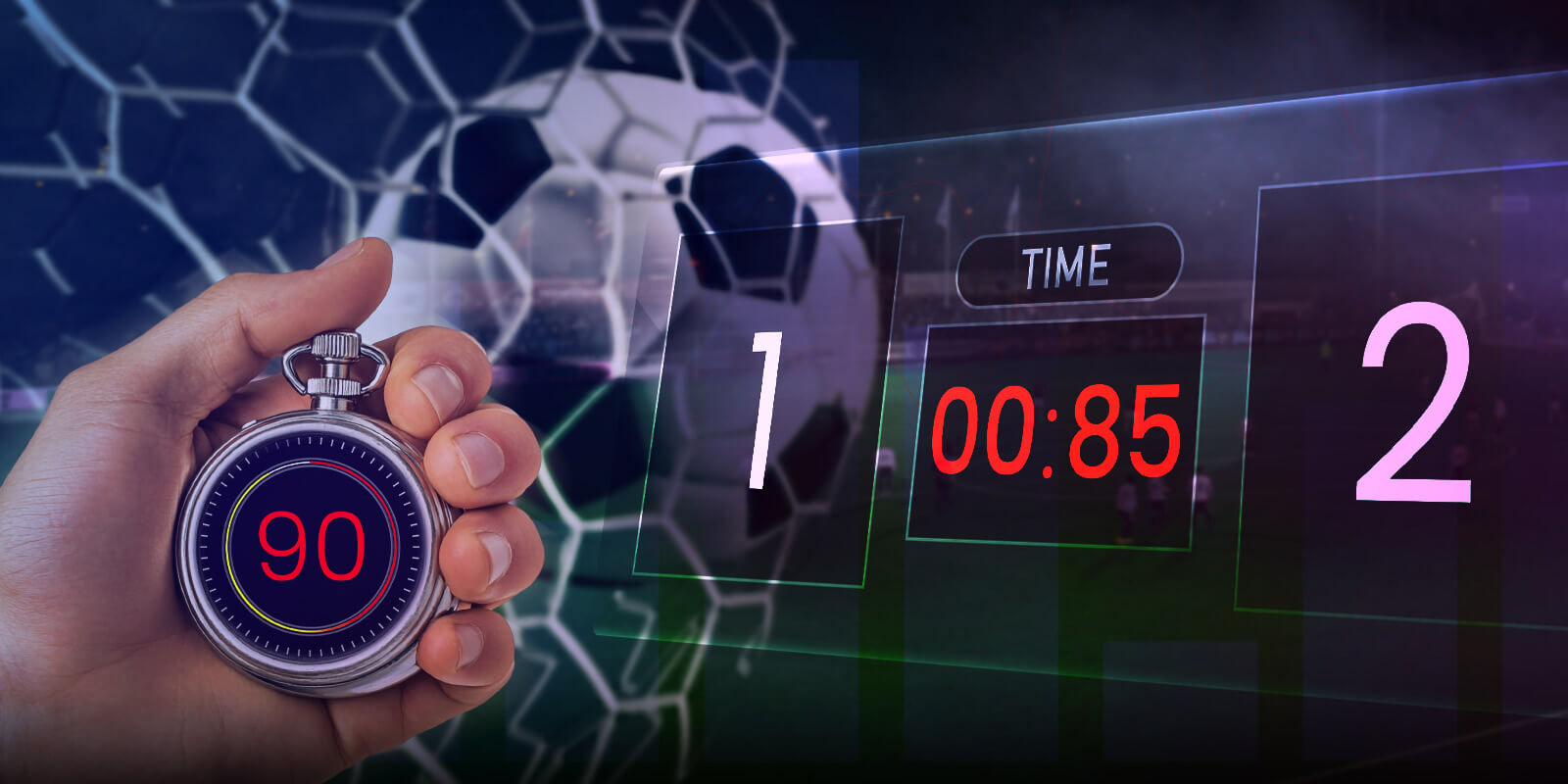How Often Do Late Goals (After 85 Minutes) Change the Match Result?

Affiliate Disclosure : We earn a commission from partners links on BetterGambling. Commissions do not affect our editors' reviews, recommendations, or ratings.
It’s the 86th minute, your team’s up by a goal, and you’re already halfway out of your seat. Then you concede a corner. They swing it in, and out of nowhere, it’s a bullet header into the back of your net. It’s 1-1!
We’ve all seen it happen, but how often do these kinds of scenarios happen? And are these swings in the dying minutes of the game just part of football’s drama, or are they something you can actually track, spot, and perhaps even predict?
- How Frequently Are Goals Scored After the 85th Minute?
- What Drives Late Goals? Strategy, Pressure, and Fresh Legs
- League Trends: Where Late Goals Matter Most
- Best Teams Known for Late-Deciding Goals
- Key Matches Changed in the Final Moments
- Are Late Goals Predictable or Simply Part of the Game?
- Sources:
How Frequently Are Goals Scored After the 85th Minute?
Statistics from Europe’s top five leagues show that roughly 10–12% of all goals come after the 85th minute. That’s about 1 goal in every 10, a stat that should not surprise you if you’ve watched enough football, because then you know things are never quite over until the final whistle.
But scoring and swinging the result aren’t exactly one and the same. A great deal of late goals simply widen the winning margin, soften a loss, or ruin your under 2.5 bet. Zoom in a little closer, and you’ll find that only around 3-4% of matches are actually decided by goals scored after the 85th minute.
What Drives Late Goals? Strategy, Pressure, and Fresh Legs
Three main forces tend to spark late-match drama: tactical changes, fatigue, and substitutions. When teams are chasing a goal, they often throw shape out the window. You’ll find what started as a cautious 4-2-3-1 morphing into a one-man backline with everyone else flooding the opposition third.
Fatigue may also lead to sloppy clearances, missed marking assignments, and mental lapses at exactly the wrong time.
Then there are the substitutes. A fresh attacker with a point to prove running at a defender who’s been sprinting for 80 minutes is basically a cheat code.
And of course, we can’t ignore the expanded timeline. What used to be a frantic final five is now regularly the last 10 (or more) minutes, thanks to generous VAR reviews, extra substitutions, and the occasional on-pitch WWE moment.
League Trends: Where Late Goals Matter Most
So, where should you expect these drama-filled endings? Here’s a snapshot of the 2023/24 season data from Europe’s Big 5 leagues:
| League | Percentage of Goals After the 85th Minute | Percentage of Outcome Change After 85’ |
|---|---|---|
| Premier League | 11.8% | 3.4% |
| La Liga | 10.2% | 3.1% |
| Serie A | 11.6% | 3.8% |
| Bundesliga | 12.3% | 3.5% |
| Ligue 1 | 10.9% | 3.2% |
Bundesliga leads the way in late scoring, something we attribute to the high-tempo play and the overall higher number of goals they score. Serie A has the highest rate of late goals that change the match outcome, likely due to cautious first halves and chaotic finishes.
La Liga is a bit more conservative, but it makes sense when you consider the fact that most Spanish teams like to be in control of the game.
Best Teams Known for Late-Deciding Goals
Certain clubs have a habit of leaving it late. It could be due to mentality or sheer tactical stubbornness, but these teams will almost always make the final five minutes count:
- Liverpool (2022–24): Their gegenpressing style of play under Jurgen Klopp’s stewardship had the Merseyside outfit scoring 8 game-changing goals after the 85th minute in 2023/24 alone.
- Bayer Leverkusen (2023/24): Five of their wins in the title-winning campaign, in which they went unbeaten, came with five or fewer minutes of normal time to go.
- Atalanta: For quite a while now, Atlanta have developed a reputation for pressing high and subbing with urgency, often flipping losses into draws and draws into late wins.
- Lazio: Despite falling short in the trophy department, Lazio has arguably been one of the most efficient teams in the Italian league. At BetterGambling, we like to call them the classic smash-and-grab merchants.
Key Matches Changed in the Final Moments
Here are 2 standout matches from recent seasons that prove just how wild the closing minutes of a game of football can be:
- Manchester City 22 Arsenal (Dec 2023): Arsenal were about to record a win at the Etihad for the first time since 2015, but Pep’s men were having none of it. After trailing to 10-man Arsenal for the entirety of the second half, Erling Haaland scored in added time to clinch a point for the hosts.
- Real Madrid 4–1 Atletico Madrid (2014 UEFA Champions League final): The win looks dominant on paper, but it was anything but straightforward. Trailing from the 36th minute, the Los Blancos were just seconds from defeat until Sergio Ramos’ dramatic 93rd-minute header dragged the match into extra time, where Madrid finally ran riot.
Are Late Goals Predictable or Simply Part of the Game?
Late goals, much like correct scores, are never easy to predict. However, for someone who’s watching live, there are usually tell-tale signs that a goal is around the corner. Here are some of them:
- One team making aggressive subs
- Defenders looking leggy and fatigued
- Opponents chasing a must-win and being intentional about it
- Bookies tightening the odds post-minute-85’
It’s still utter chaos, though. You can model probabilities and factor in context as much as you wish, but at the end of the day, a deflected cross or a missed clearance can make all logic look like guesswork.
Final Whistle
So, how often do late goals change the outcome of a game of football? Not often, if statistics from recent seasons are anything to go by, but enough to keep your eyes glued to your TV until the very last minute. They’re chaotic and, more notably, rare, and that is precisely why we love them.




